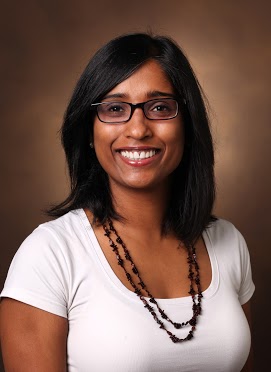New Vision Research Focus - Swati Rane

I am an imaging research scientist and I develop novel imaging methods, as well as analyses to better understand AD pathogenesis. My New Vision Award in 2015 jump started my research career and allowed me to build upon my research ideas and pursue them to eventually become an independent investigator few years later. My primary focus is to understand the vascular contributions to cognitive impairment and dementia (VCID). Since my CCAD award, I have received a career development award, my first independent R01, multiple foundation grants, as well as DoD and industry-sponsored grants to follow this path.
The CCAD experience has been instrumental to my research career. I was inspired to be in the company of passionate young research scientists with strong background in genetics, epidemiology, imaging, and modeling. Our 2015 CCAD meeting prepared us to present our ideas and defend them to a panel of experts, similar to what we would do for our later grant submissions to the NIH. I enjoyed keeping in touch with my colleagues after the meeting and seeing them develop their ideas and have successful careers over the last few years. This year’s CCAD meeting in Hawaii was a culmination of all that the CCAD-selected investigators have achieved so far and how we all could shape the future of Alzheimer’s research.
I have now established my own lab focused on VCID. Based on my work with the CCAD grant award, my lab has developed novel imaging methods to non-invasively measure vasocompliance and recently measured blood brain barrier permeability without contrast. These methods await their first trials in our upcoming R01 project. We have also branched out to develop measures of glymphatic function and the role that cerebrovascular pathology plays in glymphatic impairment. Our methods are being applied in various studies at University of Washington and the Puget Sound VA in not only Alzheimer’s disease, but also in Parkinson’s disease and traumatic brain injury. Our team has trained about 10 young research scientists, mentored postdocs and undergraduate and graduate students in performing all aspects of research, be it recruiting, imaging, analyses, outreach, and education.
I serve two more roles at the University of Washington. I am the Director of the research-only MRI center at the University of Washington School of Medicine. In this capacity, my second team oversees MR imaging for over 75 different projects addressing research questions in all areas such as sickle cell disease, obesity, pain, breast cancer, HIV-related cognitive impairment, and frontotemporal lobar dementia. I also serve are the Director of the Brain Imaging Core for the NIH funded Center for Humans Disabilities and Development (CHDD) providing technical support in all aspects of imaging related to healthy development and related disorders such as autism, birth defects, emotional regulation in adolescents, etc. Although unrelated to Alzheimer’s disease, these roles provide new opportunities that help us become well-rounded in all aspects of imaging and inspires us to translate ideas from one field to another including Alzheimer’s disease. This all comes back to what I gained from CCAD and hope to pass on to all my trainees – the joy of being lifelong learners and trying something new. There is a great idea lurking right around the corner!
